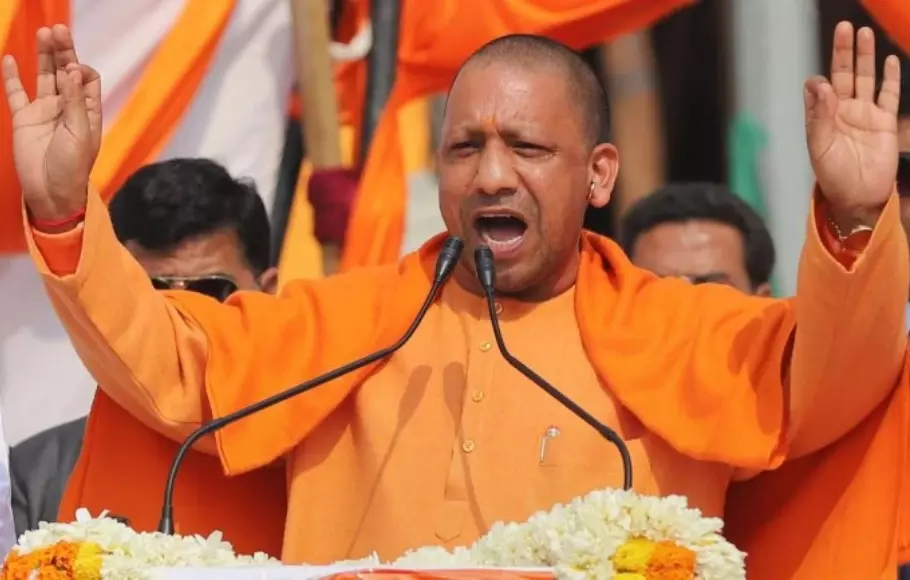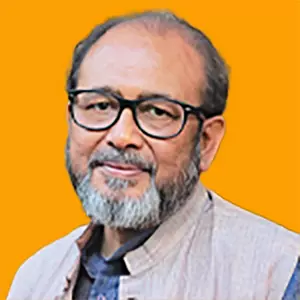
- Home
- India
- World
- Premium
- THE FEDERAL SPECIAL
- Analysis
- States
- Perspective
- Videos
- Sports
- Education
- Entertainment
- Elections
- Features
- Health
- Business
- Series
- In memoriam: Sheikh Mujibur Rahman
- Bishnoi's Men
- NEET TANGLE
- Economy Series
- Earth Day
- Kashmir’s Frozen Turbulence
- India@75
- The legend of Ramjanmabhoomi
- Liberalisation@30
- How to tame a dragon
- Celebrating biodiversity
- Farm Matters
- 50 days of solitude
- Bringing Migrants Home
- Budget 2020
- Jharkhand Votes
- The Federal Investigates
- The Federal Impact
- Vanishing Sand
- Gandhi @ 150
- Andhra Today
- Field report
- Operation Gulmarg
- Pandemic @1 Mn in India
- The Federal Year-End
- The Zero Year
- Science
- Brand studio
- Newsletter
- Elections 2024
- Events
- Home
- IndiaIndia
- World
- Analysis
- StatesStates
- PerspectivePerspective
- VideosVideos
- Sports
- Education
- Entertainment
- ElectionsElections
- Features
- Health
- BusinessBusiness
- Premium
- Loading...
Premium - Events

Once an official directive encourages minority profiling, there is no knowing when various underprivileged groups, especially Dalits, will be similarly targeted
Uttar Pradesh Chief Minister Yogi Adityanath’s directive that the names and addresses of owners, operators, managers, and every junior staffer of all food stalls, big or small, in the state should be mandatorily and prominently displayed on the premises is retrograde and divisive.
Besides making the installation of CCTV cameras in hotels and restaurants mandatory, Adityanath’s order that chefs and waiters should at all times wear masks and gloves within the premises is aimed at creating an atmosphere of fear within the F&B industry — both organized and unorganized.
It will also needlessly arm various enforcement agencies and the police with intrusive power and likely lead to making the extortion of owners and operators a norm, not an exception.
Himachal does a “me too”
It is lamentable that the other state governments did not right away condemn this obnoxious decision. Instead, the first response was a typical “me-too” act from a minister of Himachal Pradesh, a state ironically governed by the Congress.
The Congress has possibly, for the moment, contained the damage stemming from the promptness with which state Cabinet minister Vikramaditya Singh, as well as his mother and state Congress committee president Pratibha Singh, endorsed Adityanath’s decision and promised to follow in his footsteps.
But, their response to the UP chief minister’s move merely shows the extent to which extreme Hindutva is gaining acceptance among large sections of political leaders, regardless of party affiliation.
A sign of internal factionalism
The reaction of the mother-son duo from the hill state came paradoxically in the face of a definitive rejection of Hindu rightwing ideology by the Congress leadership, led from the front by Rahul Gandhi, after prevaricating on the issue for long.
It is indeed a strange coincidence that the actions of the UP CM, as well as the aforementioned Congress leaders from Himachal, are to a certain extent motivated by internal politics and factionalism within their respective parties.
Also read: SC judge explains between veg eateries run by Hindu and Muslim, which he chose and why
Repercussions of an apex court order
With regard to Adityanath, the decision has come as a response to the Supreme Court order in July when it stayed the state police’s directive that would have compelled shop owners and hawkers along the routes of the Kanwar Yatra to display their names along with those of their staff members.
The apex court also declared that if the government wishes to ensure that the pilgrims are served hygienic and vegetarian food, the authorities may issue orders in that respect as mandated under the Food Safety and Standards Act, 2006, and the Street Vendors Act, 2014.
Not willing to let the pressure decline, Adityanath’s statement merely says that these orders may be issued after making the “necessary amendments to the Food Safety and Standards Act to ensure compliance”.
A look through the political prism
The UP chief minister’s step and the statement made by the two Congress leaders of Himachal have to be assessed from the political prism too. It is well-known that Adityanath has been at loggerheads with his party’s central leadership (essentially the power duo comprising Prime Minister Narendra Modi and Union Home Minister Amit Shah) over who can be apportioned blame for the party’s poor performance in the Lok Sabha elections this year.
While reports have suggested that the central leadership was keen to bring about a leadership change in the state, Adityanath has no intention to relinquish power. With this decision, first in July and thereafter now, he has tried to consolidate his support base among the extreme section of the Hindu majoritarian electorate.
His decision is based on his understanding that Modi, because of his reduced numerical strength in Parliament, would be reluctant to indulge the fringe forces among the supporters of the Hindutva idea beyond a certain point.
Fears of a cascading effect
In the case of the Congress in Himachal, the two Congress leaders mentioned earlier are at loggerheads with the state Chief Minister Sukhvinder Singh Sukhu, and their statement was aimed at creating a problem for the regime.
It is worrying, however, that Adityanath’s move has the potential to have a cascading effect in other states governed by the Bharatiya Janata Party, as well as other parties. In July, several petitioners moved Supreme Court against the UP government’s notification, but during the hearing, the two-judge Bench suo motu impleaded the Madhya Pradesh government after they learnt that the Ujjain Municipal Corporation had passed a similar order against food stall owners.
The notification or order making it mandatory to display names of owners and the entire staff is aimed at pushing out religious minorities — mainly Muslims, as well as Christians — from the F&B sector, or at least restrict them to colonies predominantly inhabited by them.
Also read: 'Electoral politics': Mayawati slams UP govt's order for eateries to display owners’ names
The aim to invisibilise Muslims
This has to be seen as part of the drive of the Hindutva forces over several years that aims to invisibilise, or make Muslims unseeable. The notification is particularly problematic because when Islamophobic sentiments of majoritarian citizens are provided official sanction, it is often just a matter of time before these people step further back into time and resort to open casteism, a display of which has been contained, to some extent in public, with considerable effort in recent decades.
Once any official directive encourages minority profiling, there is no knowing when various underprivileged groups, especially Dalits, will be similarly targeted.
For a considerable part of the post-Independence period, Unity in Diversity was a major clarion call of the State and also the people. But now, with the Adityanath directive, a beginning is being made to further deepen social divergences and standing.
Why size matters
The informal food and hospitality sector is fairly large, with small dhabas and wayside mobile stalls being prevalent in almost every nook and corner of the country.
The capacity of this sector to employ people and generate livelihoods is evident from Modi’s statement during a media interview in 2018, when he said that street food vendors who sell pakodas must be counted when assessing employment statistics in India.
Even in towns and cities, restaurants, big and small, are commonplace, and this sector provides employment and opens up business opportunities for countless people of varying social profiles.
While, in large establishments, the name tag on the lapel essentially introduces a human element in the exchange between the service staff and the customers, this may precipitate exclusionary sentiments and actions and deepen social prejudices in smaller establishments and street food joints.
A tool to segregate people?
The added problem with the order like the one Adityanath has directed is that there is no knowing whether this will be the limit of exclusion, or if in future, it may be mandated, that even customers must display their social identity to ensure that other customers, who may not wish to sit adjacent to them, are aware of their identity. With such an order, there is always the danger of this being overused as a tool to segregate people.
The UP chief minister’s order must be challenged legally as well as politically because it carries the danger of weakening the common identity as equal citizens of India.
In its place, we will be first known by thousands of other identities and, then, it will be difficult to forge oneness and pursue common concerns and objectives, both national and personal.
(The Federal seeks to present views and opinions from all sides of the spectrum. The information, ideas or opinions in the articles are of the author and do not necessarily reflect the views of The Federal)


